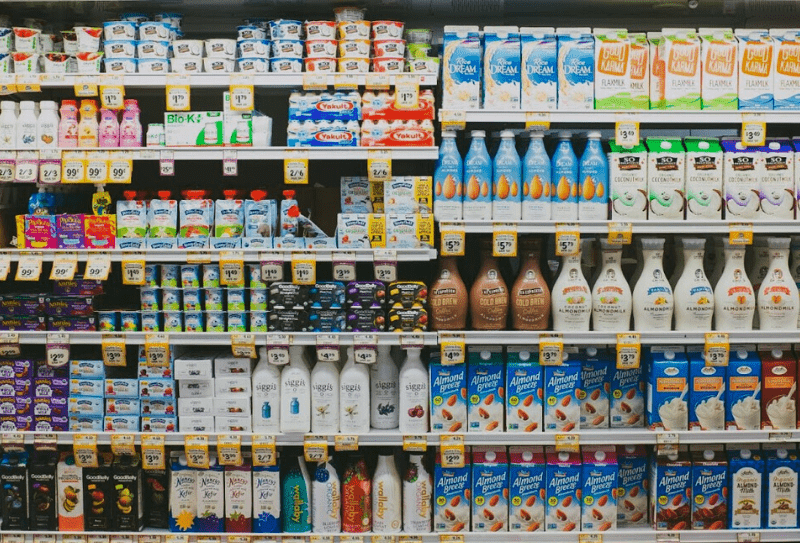
According to insights from strategy consultancy Roland Berger, the plant-based dairy market in Western Europe and North America is growing at an unprecedented rate as consumers increasingly prioritize health and sustainability.
In 2023, the size of the plant-based dairy retail market reached $11.55 billion (€10.7 billion), up from $7.34 billion (€6.8 billion) in 2019. This reflects a compound annual growth rate of 12%. The growth is primarily driven by plant-based beverages, which make up 60% of the total market, followed by yogurt and cheese alternatives. The horeca sector is also increasingly embracing dairy alternatives, providing a foundation for continued growth in the industry.
However, plant-based dairy still only accounts for a fraction of the traditional dairy market. Milk alternatives are the most successful product type, achieving 12% penetration of the total milk market. Other dairy alternatives such as yogurt, butter, and ice cream remain underrepresented, occupying 4% or less.

Paving the way for growth
There is a significant disparity in the adoption of dairy alternatives between Western European countries; for example, Finland spends €34.20 per person per year on plant-based dairy, while France spends just €5.90.
Previous research conducted by the University of Hohenheim in 2023 also found variations in attitudes to milk alternatives between European countries. Germany was found to have high market potential due to widespread awareness of animal welfare, health, and the environment, along with the willingness of consumers to try non-traditional foods. In contrast, consumers in France, Spain, and Italy were more skeptical due to long traditions of consuming cheeses and other dairy products.
“The rise of plant-based dairy reflects a profound shift in consumer preferences towards sustainability and health, which paves the way for innovation and growth in the market,” said Alexander Belderok, senior partner at Roland Berger.

“Brands must adopt targeted strategies”
A recent global survey conducted by Roland Berger found that 58% of respondents were open to switching to plant-based dairy. However, the research also concluded that there were significant barriers to widespread acceptance, including taste, texture, limited availability, high prices, and
perceptions of over-processing.
Additionally, the survey indicated high brand awareness for Alpro and Oatly, which were recognized by 83% and 82% of respondents respectively. According to Roland Berger, the companies have achieved success by focusing on innovation, expanding their portfolios, and investing in their brands to enhance market presence.
“To significantly penetrate the dairy market, brands must adopt targeted strategies, including optimizing protein crops and extraction processes, innovating recipes for improved taste, enhancing brand strength, expanding distribution, and driving product innovation to increase consumer delight,” said Belderok.



